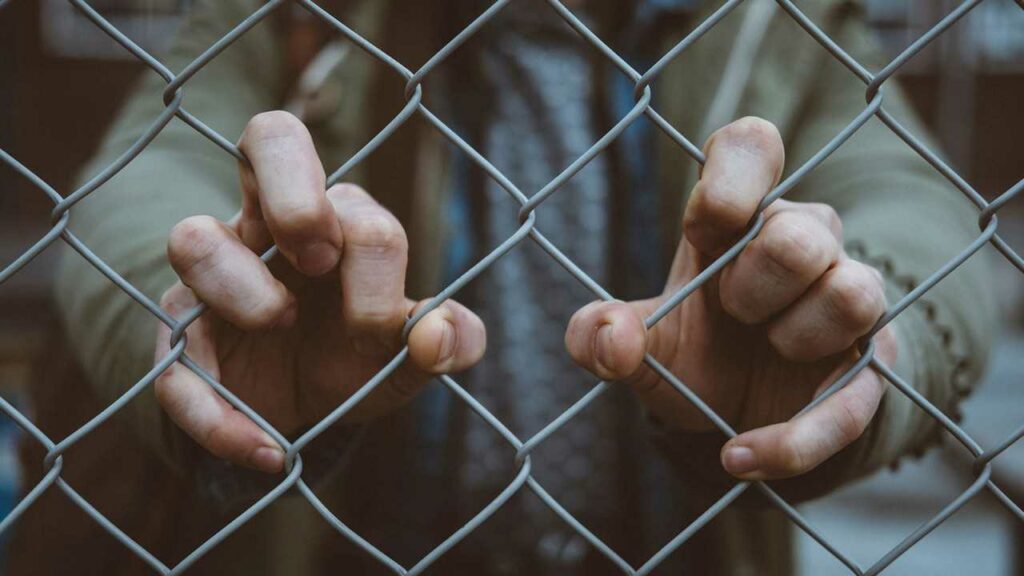In today’s digital age, with virtually unlimited access to content, an increasing number of individuals are falling prey to the clutches of porn addiction. While society often brushes this topic under the rug or makes light of it, the reality is that porn addiction can have serious consequences on an individual’s mental health, relationships, and overall well-being. This blog post aims to shed light on the role of porn addiction therapists, the techniques used, and offer tips to find them.
Contents
When Should I Seek A Porn Addiction Therapist?
 Pornography, like many other forms of media, can be consumed without resulting in addiction. However, for some, the line between casual consumption and dependency can become blurred. If you’re concerned about your relationship with porn, it’s essential to recognize when professional help might be beneficial.
Pornography, like many other forms of media, can be consumed without resulting in addiction. However, for some, the line between casual consumption and dependency can become blurred. If you’re concerned about your relationship with porn, it’s essential to recognize when professional help might be beneficial.
Here are some signs and circumstances indicating that it might be time to seek the expertise of a porn addiction therapist:
- Loss of Control: If you find it challenging to reduce or stop your consumption of porn, despite wanting to, it might suggest a loss of control.
- Interference with Daily Life: When porn consumption starts affecting your daily activities. Such as work, school, or other responsibilities, it’s a red flag.
- Strained Relationships: If your relationship with loved ones, especially your partner, is suffering due to your porn habits, it’s an indication that there might be a deeper issue.
- Escalating Consumption: If you find yourself needing more explicit or extreme material to achieve the same level of arousal, it might signify a growing dependence.
- Emotional Distress: Feelings of guilt, shame, anxiety, or depression after consuming porn can be indicators of a problematic relationship with it.
- Neglect of Other Activities: If you’re missing out on hobbies, social activities, or other engagements because of the time spent on porn, it’s worth reconsidering your consumption habits.
- Failed Attempts to Quit: If you’ve tried to reduce or quit your porn consumption multiple times without success, it’s a clear sign that external support might be necessary.
Recognizing these signs in yourself or a loved one is the first step towards healing. Remember, seeking help is not a sign of weakness but of strength.
How Does A Porn Addiction Therapist Help?
A porn addiction therapist plays a pivotal role in assisting individuals to navigate the complexities of their addiction, understand its root causes, and develop strategies to overcome it. Here’s a detailed look at how a porn addiction therapist can help:
- Creating a Safe Space
Therapists provide a non-judgmental environment where individuals can freely discuss their struggles, feelings, and concerns related to their addiction.
- Understanding the Underlying Causes
Through discussions and assessments, therapists help individuals pinpoint triggers and underlying factors contributing to the addiction. This could range from stress, past trauma, and relationship issues, to other psychological factors.
- Developing Personalized Coping Strategies
Every individual is unique. Therapists work collaboratively with clients to develop tailored coping mechanisms that address their specific triggers and habits.
- Enhancing Emotional Regulation
Therapists teach skills that help individuals manage and regulate their emotions more effectively. And, reducing the likelihood of turning to porn as a coping mechanism.
- Restoring Relationships
Porn addiction often strains personal relationships. Therapists can guide individuals in repairing trust, improving communication, and rebuilding intimacy with loved ones.
- Educating on the Impacts
A significant part of therapy might involve educating the individual about the neurological, psychological, and relational impacts of porn addiction.
Overall, a porn addiction therapist provides a holistic approach to recovery, addressing both the overt symptoms of the addiction and the underlying emotional, cognitive, and relational factors. Their guidance is instrumental in helping individuals regain control of their lives.
What Common Techniques Do They Use?
 Porn addiction therapists utilize a range of evidence-based techniques and approaches to help individuals overcome their addiction and restore balance to their lives. Here are some of the most common techniques:
Porn addiction therapists utilize a range of evidence-based techniques and approaches to help individuals overcome their addiction and restore balance to their lives. Here are some of the most common techniques:
Cognitive Behavioral Therapy (CBT)
- Thought Recordings: Clients are taught to document and challenge irrational or negative thoughts associated with their addiction.
- Behavioral Experiments: Clients test out new behaviors and compare the results with their expectations.
- Motivational Interviewing: This is a client-centered technique that emphasizes personal motivation to change and resolve ambivalence.
- Exposure Therapy: In controlled environments, clients are exposed to triggers without acting on them, helping reduce the power of these triggers over time.
Mindfulness and Meditation
- Mindful Awareness: Clients are taught to be fully present, observing their urges without acting upon them.
- Guided Meditation: Helps in relaxation and refocusing the mind away from addictive thoughts.
- Relapse Prevention Training: Clients are educated about the stages of relapse and are given tools to recognize and prevent potential triggers.
Eye Movement Desensitization and Reprocessing (EMDR)
This technique can be particularly helpful if the addiction is linked to past trauma. EMDR helps process traumatic memories, reducing their emotional charge.
Family Therapy
Since addiction often affects more than just the individual, family therapy can be beneficial in repairing relationships and building a support system.
Psychoeducation
Clients are educated about the neurobiology of addiction, its effects, and the benefits of recovery.
Narrative Therapy
This technique focuses on reshaping the individual’s life story, emphasizing strengths, and moving away from an addiction-centric narrative.
Biofeedback and Neurofeedback
These are technological methods where clients receive real-time data about physiological functions, helping them understand the relationship between their body, mind, and addiction.
Group Therapy
Clients benefit from shared experiences, peer support, and a sense of community, helping them feel less isolated in their journey.
Journaling
Clients are encouraged to document their feelings, triggers, and progress, providing insight and awareness into their habits and emotions.
The specific techniques a therapist employs will depend on the individual’s unique needs, the severity of the addiction, any underlying causes or comorbid conditions, and the therapist’s own training and expertise. The ultimate goal is always to provide the client with tools and strategies to understand, combat, and overcome their addiction.
How Do I Find A Porn Addiction Therapist Near Me?
 Finding a porn addiction therapist in India, or anywhere else, requires a bit of research and diligence. Here’s a step-by-step guide tailored to the Indian context:
Finding a porn addiction therapist in India, or anywhere else, requires a bit of research and diligence. Here’s a step-by-step guide tailored to the Indian context:
- Consult Your General Physician: Begin by discussing your concerns with your family doctor or general physician. They might have contacts within the medical community and can refer you to a specialist or counselor.
- Vandrevala Foundation: This is a 24/7 helpline offering counseling for various issues, including addiction. They might provide references to specialists near you.
- Use Online Directories: Websites like Practo, Lybrate, and Vaidam allow you to search for psychologists, psychiatrists, and counselors in various Indian cities. You can refine your search based on specialties or patient reviews.
- University Counseling Centers: Major universities with psychology or psychiatric departments often have counseling centers that offer services to the public or can refer you to specialists.
- Word of Mouth: Ask friends, family, or colleagues for recommendations. Personal endorsements can sometimes be the most reliable.
- Join Support Groups: While not a direct way to find a therapist, joining support groups can provide you with peer recommendations. You can find support groups through social media platforms or community centers.
- Teletherapy Platforms: Given the stigma that can sometimes be associated with porn addiction in India, some individuals prefer online therapy sessions. Platforms like TherapyMantra and MantraCare offer online counseling services where you can get help anonymously.
- Be Diligent: Before finalizing a therapist, ensure they have the necessary qualifications and experience. It’s also crucial to find someone you’re comfortable with, so consider having an initial consultation to gauge the fit.
Remember, the process might require patience. But finding the right therapist is a significant step in your journey to recovery and well-being.
What Are Some Self-Help Strategies?
Certainly! For those grappling with porn addiction, integrating self-help strategies can be a pivotal step in regaining control over their lives. Here are some effective strategies:
Awareness & Acknowledgment
Recognizing and admitting that you have a problem is the first step toward recovery. Journaling can be helpful in gaining insights into patterns and triggers.
Avoid Triggers
Identify what prompts the urge and eliminate or avoid those triggers. This can include certain situations, places, times of day, or even emotional states.
Digital Restrictions
- Install porn-blocking software or apps on your devices.
- Keep electronic devices in shared or common spaces.
- Unsubscribe from explicit websites or channels.
Stay Busy
An active routine leaves less time for unwanted distractions. Pick up a new hobby, exercise regularly, or learn something new.
Mindfulness and Meditation
Practicing mindfulness can help you stay present and recognize urges without acting upon them. Meditation can be a tool to redirect and calm the mind.
Establish Accountability
Share your goal to quit or reduce porn consumption with a trusted friend or family member who can check in on your progress.
Self-care
Engage in activities that help reduce stress, as high stress levels can be a trigger. This might include exercise, reading, baths, or other relaxation techniques.
Replace the Habit
When you feel the urge, divert your attention to another activity that you enjoy, like listening to music, going for a walk, or calling a friend.
Set Clear Goals
Define what you want to achieve, whether it’s complete abstinence, reduced consumption, or more control over your urges.
Stay Positive
It’s important to maintain a positive mindset. Celebrate small victories and don’t get too discouraged by setbacks. Recovery is a journey with ups and downs.
Remember, while self-help strategies can be incredibly effective, they’re most beneficial when paired with other forms of support. Especially for those with deep-seated addictions.
Conclusion
In an increasingly digital world, the shadows of porn addiction loom large for many, threatening their mental well-being, relationships, and overall quality of life. Recognizing the signs of addiction and understanding the multifaceted ways in which a therapist can aid in recovery are paramount. India, with its rich tapestry of culture and evolving perspectives on mental health, offers various avenues for seeking help.
Whether through personal referrals, professional organizations, or online platforms, the journey toward healing and balance is always within reach. The first step, as always, is acknowledging the need for support. Online therapists are increasingly important in today’s world because they provide a convenient and accessible way for people to receive mental health support and treatment. Visit TherapyMantra for affordable Online Therapy: Book a trial Online therapy session


